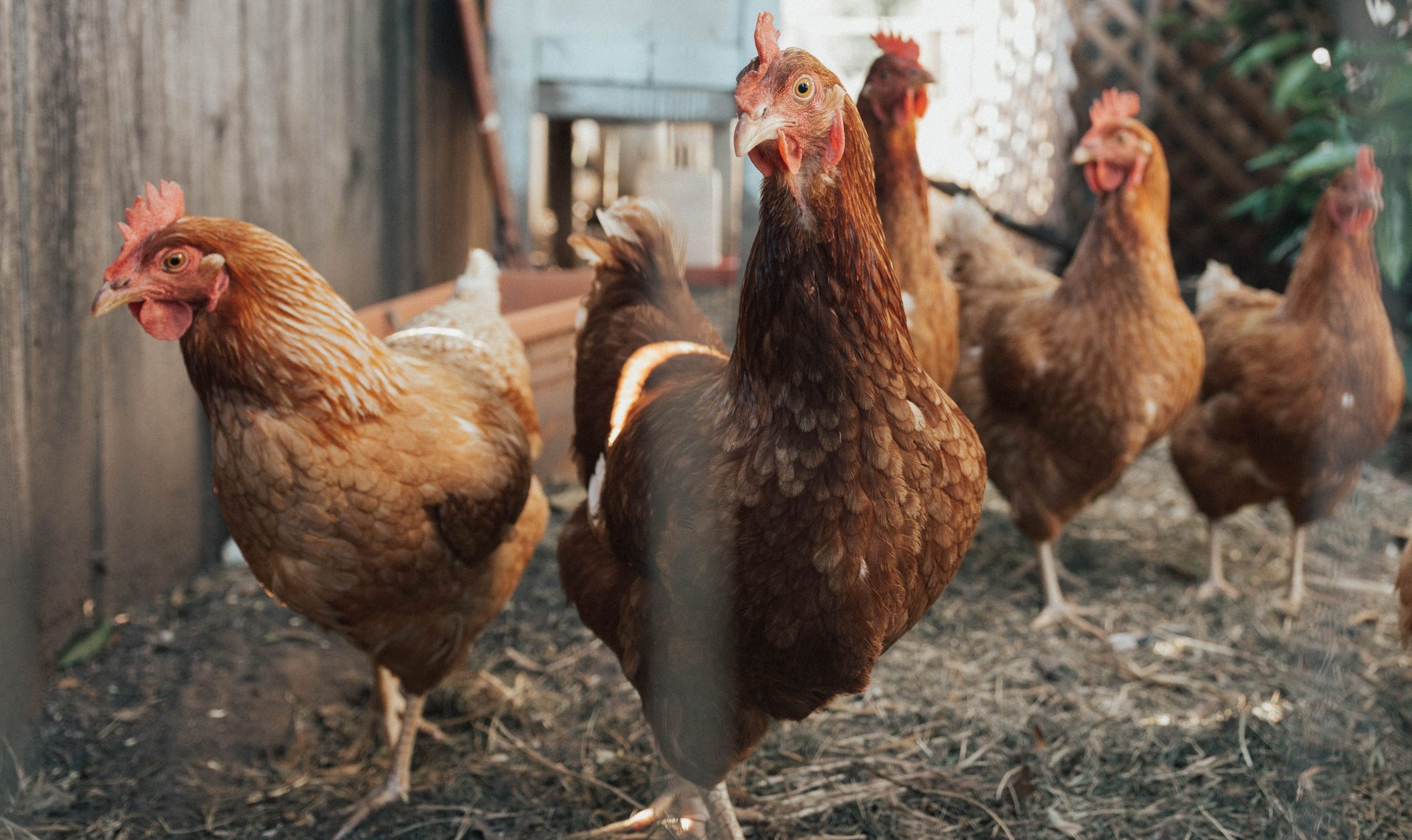
Is Chicken The Most Sustainable Meat?
It is commonly accepted that chicken is the most sustainable meat, but is this true?
Whilst chicken is often thought of as the most sustainable meat due to its low carbon emissions, poultry farming has negative repercussions. Although chicken may be seen as an ethical alternative to beef and lamb, there are multiple causes for concern.
WELFARE CONCERNS: IS CHICKEN SUSTAINABLE?
Chickens bred for meat are called broiler chickens. In order to meet the huge demand for chicken, the birds are injected with a growth hormone to make them grow bigger and faster. This allows farmers to sell meat quickly, and make more money. However, the growth hormone led to skeletal deformities due to the fact the body is forced to grow at an unnatural speed.
The Poultry Site disputes the fact that hormones are used to increase chicken size, claiming they have started getting bigger as a result of better farming. Regardless of whether chickens are injected with hormones, broiler chickens often grow so big they cannot support their own weight. Poultry farming is purely concerned with profit. Chickens are kept in horrible conditions so that all they do is eat, increasing their size rapidly. Cramming as many birds as possible into dark barns makes chickens’ lives miserable. Unable to stand to get food or water, many chickens perish on the spot.
Choosing to stop eating chicken or only eating chicken from ethical farms sends a message to unethical poultry farmers. The public will not tolerate this inhumane treatment of animals.


ANTIBIOTIC CONCERNS: IS CHICKEN SUSTAINABLE?
The human race cannot survive without antibiotics. Farming requires a lot of antibiotics to feed animals and control spread of disease. With our supplies dwindling, using all our medical resources on animals is a risk.
In America alone, approximately 99% of chickens used for eggs and meat are raised in factory farms. Farmers will try and fit multiple birds in a small space to maximise their profits. When you try to fit that many birds into one space there is a high risk of disease spreading. Antibiotics are one of the most effective ways to reduce the outbreak of viral and bacterial diseases amongst animals. Of course, to prevent the outbreak of pandemics this is an important precaution and seemingly good use of antibiotics. However, if fewer people ate chicken it would reduce the number of antibiotics used to prevent outbreaks of disease. But the problem goes beyond the mass amount of antibiotics needed to farm chickens safely.
A worrying trend is emerging in the meat farming industry. In countries where meat production is skyrocketing, such as China, India, and Brazil, animals are becoming more resistant to antibiotics. Naturally, as the production rate of meat increases, so does the risk of disease. This means animals require a larger dose of antibiotics to fight infections. If animals continue to develop resistance to antibiotics we will need to use more medical supplies to continue meat production. With our increasing population, we would be better off reducing our meat consumption and farming more ethically on a smaller scale. This way we would lessen antibiotics required for farming and preserve resources for people in need.
DEFORESTATION AND SOYA: IS CHICKEN SUSTAINABLE?
Chickens, just like other animals, are fed on soya. Soya production contributes to deforestation which is propelled by meat farming. Soy milk and other vegetarian alternatives containing soy are often blamed for deforestation, but in reality, they use a lot less soy than the meat industry.
Many people believe it is important to consume meat because they can’t get as many nutrients from soy alternatives. Mike Berners Lee disproves this in There is no Planet B. Gram for gram soy has more of every essential nutrient than cows and sheep. Meaning soy can be just as nutritious as meat. There is no excuse not to try and consume soy-based proteins to reduce your impact on the planet. Deforestation is driven by meat production far more than soy milk and vegetarian options.
You might be thinking ‘What if everyone became vegetarian? Would the damage of soy alternatives increase?’. The bottom line is, everyone going vegan or vegetarian is not going to happen. So many cultural dishes contain meat, and so many people are adamant to continue eating it. Whilst there would be changes in our ecosystems if everyone stopped eating meat, the repercussions of decreased meat consumption are far less catastrophic than the damage of burning fossil fuels and fracking. It is undeniable that reducing meat consumption benefits our planet by lowering carbon emissions, preserving soy and antibiotics.


POLLUTION CONCERNS
With a lot of chickens, comes a lot of chicken faeces. Whilst chicken poo contains lots of nutrients, it contributes to pollution. When chickens are bred outside their poo is washed away by rainfall. Eventually, the nutrients and remnants of faeces flow into rivers and lakes, etc. This may sound harmless, but the nutrients from the poo lead to harmful algal blooms. An algal bloom is the growth of toxic algae that occurs in particular conditions. The overgrowth of toxic algae prevents sunlight from reaching other underwater plants, causing them to die. Algal blooms make large bodies of water unsafe for recreational use. They also contaminate drinking water which is dangerous for animals and humans.
If chickens were bred sustainably with enough room to walk free, their poo could be disposed of properly, rather than causing dangerous algal blooms.
HOW TO BREED CHICKENS SUSTAINABLY
The most ethical way to breed chickens is organically so they have space to roam free. Free-range is no longer enough. The requirements for free-range chickens have been reduced to 4m² per hen. This is still a limited amount of space, restricting their happiness. Organic chickens have over double the amount of space with 10m² per head, so they have proper freedom to roam. The more space the chickens have the healthier they are, and the better quality the meat is. If we farmed chickens in a sustainable way, the risk of the spread of disease would be reduced and antibiotics could be preserved. As well as this, the amount of faeces would be more manageable and easier to dispose of, preventing it from getting washed into nearby bodies of water.
IS CHICKEN THE MOST SUSTAINABLE MEAT?
Carbon emissions-wise, chicken is a sustainable alternative to red meat. Chickens require less food and water than other farm animals and they do not release methane into the atmosphere. However, the implications of eating chicken and supporting unethical chicken farming have a negative impact on our environment. Reduce all meat consumption where possible to reduce the severity of the implications of chicken farming.
+ Words
Florenne Earle Ledger
Luxiders Magazine






